Are you concerned about the fuel efficiency of your vehicle? Are you tired of constantly filling up your gas tank? If so, it may be time to check for fuel evaporation leakage.
This common issue can significantly reduce your fuel economy and lead to costly repairs, but with regular checks, you can prevent it from becoming a major problem.
Fuel Evaporation Leakage Check occurs when gasoline vapor escapes from your vehicle’s fuel system. This can happen for a variety of reasons, including a faulty gas cap, a cracked hose, or a damaged fuel tank.
Not only does this lead to a decrease in fuel efficiency, but it can also be harmful to the environment and potentially dangerous if the vapor ignites.
By understanding the symptoms of fuel evaporation leakage and performing regular checks, you can ensure that your vehicle is running efficiently and safely.
Table of contents
Way to Identify an Evap Leak:
There are a few ways to identify an EVAP leak:
If you suspect that you have an EVAP leak, it’s important to have your car diagnosed by a qualified mechanic. A mechanic will be able to use specialized tools to locate and repair the leak.
Here are some additional tips for identifying an EVAP leak:
Watch this video for more helpful insights:
What Are the Symptoms of An Evap Leak?
The symptoms of an EVAP leak can vary depending on the severity of the leak and the make and model of your car. However, some common symptoms include:
Other possible symptoms of an EVAP leak include:
If you notice any of these symptoms, it’s important to have your car diagnosed by a qualified mechanic as soon as possible. An EVAP leak can cause serious problems if it’s not repaired.
Here are some tips for preventing EVAP leaks:
Understanding Fuel Evaporation Leakage:

If you’re wondering why your car smells of gasoline, it could be due to fuel evaporation leakage.
Fuel Vapors Escape from The Vehicle’s Fuel System:
This happens when fuel vapors escape from the vehicle’s fuel system.
Fuel evaporation leakage can be caused by a number of factors, including a loose or damaged gas cap, a damaged fuel tank or fuel lines, or a faulty charcoal canister.
Temperature:
Temperature also plays a role in fuel evaporation. As temperatures rise, the vapor pressure in the fuel system increases, causing more fuel vapors to escape.
This is why fuel evaporation leakage tends to be more common in hot weather. In addition, the composition of the fuel can also affect its volatility, which can impact the rate of fuel evaporation.
Fuel evaporation leakage can be a serious issue, not just because of the unpleasant odor it causes, but also because it can be a fire hazard.
Fuel vapors are highly flammable and can ignite if they come into contact with a spark or flame. That’s why it’s important to have your vehicle inspected regularly and to address any fuel system issues promptly.
By doing so, you can help ensure your safety and the safety of others on the road.
Smoke Test for Fuel Evaporation Leakage:
When you need to check for fuel evaporation leakage, a smoke test is a useful option. During this test, a machine pumps smoke into the fuel system, which reveals any leaks.
One of the benefits of this test is that it can detect even the smallest leaks, helping you to identify and fix problems quickly.
Additionally, the smoke used in the test is safe and non-toxic, making it a reliable and environmentally-friendly option.
How a Smoke Test Works?
To understand how a smoke test works, it’s important to know that it involves introducing smoke into a vehicle’s fuel system to detect any leaks.
The smoke is created by heating a mineral oil-based liquid, which produces a dense, white smoke that is safe for the environment and non-toxic.
The smoke is then introduced into the fuel system through a connection point, such as the gas cap, and allowed to flow through the system.
As the smoke flows through the fuel system, it will escape through any leaks and reveal their locations.
The smoke test advantages include its ability to detect even small leaks that might not be visible to the naked eye, and its non-intrusive nature that doesn’t require any disassembly of the system.
The smoke test procedure is quick and easy, typically taking less than an hour to complete, and can be performed by a trained technician with specialized equipment.
Benefits of a Smoke Test:
You’ll be amazed at the many advantages that a smoke test can provide for your vehicle’s fuel system.
Detect Any Potential Issues:
Firstly, it can quickly detect any potential issues, such as fuel evaporation leakage, which can be difficult to identify through other diagnostic methods.
This means that you can nip any problems in the bud before they escalate into more serious and costly repairs.
A Smoke Test Can Accurately Pinpoint the Location of The Problem:
Secondly, a smoke test can accurately pinpoint the location of the problem, allowing technicians to work on it more efficiently and effectively.
This means that you can expect a faster turnaround time for repairs, as well as a more accurate diagnosis.
However, it’s important to note that smoke tests do have their limitations, and they may not be suitable for all vehicles or all types of problems.
For example, if your vehicle has a very small leak, it may not be detected by a smoke test.
Nonetheless, for most fuel system issues, a smoke test is an excellent diagnostic tool that can save you both time and money in the long run.
Gas Cap Pressure Test:

The gas cap pressure test is essential to detect fuel evaporation leakage in your vehicle. This test is done by placing a pressure gauge on the gas cap and measuring the amount of pressure in the fuel tank.
If the pressure is not within the manufacturer’s specifications, it indicates that there is a leak somewhere in the fuel system.
Here are four reasons why you should regularly perform a gas cap pressure test:
Improved Fuel Efficiency:
A loose or faulty gas cap can cause fuel to evaporate from the tank, which leads to a decrease in fuel efficiency.
By regularly checking the gas cap pressure, you can ensure that your gas cap is functioning correctly and prevent unnecessary fuel loss.
Reduced Emissions:
Fuel evaporation produces harmful emissions that are released into the atmosphere.
By detecting and repairing fuel leaks early on, you can reduce the amount of harmful emissions your vehicle produces.
Cost Savings:
A gas cap pressure test is a quick and inexpensive way to detect fuel leaks. By catching leaks early, you can prevent costly repairs down the road.
Compliance with Regulations:
Many states have regulations regarding vehicle emissions. By ensuring that your vehicle is not leaking fuel, you can avoid fines and other penalties for non-compliance.
Regular gas cap maintenance and pressure testing can lead to significant fuel efficiency improvements and cost savings over time.
By taking care of your gas cap, you can also reduce harmful emissions and comply with state regulations. So, make sure to add gas cap pressure testing to your routine vehicle maintenance checklist.
Signs of Fuel Evaporation Leakage:

When it comes to fuel evaporation leakage, there are some common signs that you should be on the lookout for.
These can include a strong gasoline smell, reduced fuel efficiency, and even engine performance issues.
But the impact of fuel evaporation leakage doesn’t stop there. It can also have negative effects on the environment and your wallet, making it important to address any issues as soon as they arise.
Common Signs to Look Out For:
One way to identify potential fuel evaporation leakage is by noticing certain telltale signs. These signs can indicate a variety of issues, from a simple gas cap problem to a more complex issue with the fuel system.
Here are three common signs to look out for:
Strong Smell of Gasoline –
If you smell gasoline near your vehicle, it could be a sign of a fuel evaporation issue. This could be caused by a damaged fuel cap, a damaged fuel line, or a damaged fuel tank.
Decreased Fuel Efficiency –
If you notice that your car is using more fuel than usual, it could be a sign of a fuel system problem. This could be caused by a fuel evaporation issue or other issues with the fuel system.
Check Engine Light –
If your check engine light is on, it could be a sign of a fuel evaporation issue. This could be caused by a variety of issues with the fuel system, including a damaged fuel cap or a damaged fuel line.
It is important to address any warning indicators immediately and use proper troubleshooting techniques to diagnose the issue and prevent further damage to your vehicle.
Effects on the Environment and Your Wallet
You’ll likely experience negative effects on both the environment and your wallet if fuel evaporation isn’t addressed promptly. Fuel evaporation occurs when gasoline vaporizes before it can reach the combustion engine.
This process not only wastes fuel but also releases harmful pollutants into the environment.
To better understand the impact of fuel evaporation, let’s take a closer look at the environmental and financial costs.
The table below highlights the impact assessment and cost analysis of fuel evaporation on both the environment and your wallet.
By addressing fuel evaporation leakage promptly, you can reduce negative effects on the environment and save money in the long run.
| Impact Assessment | Cost Analysis |
|---|---|
| Increased air pollution | Wasted fuel costs |
| Damage to public health | Increased maintenance costs |
| Harmful effects on wildlife | Decreased fuel efficiency |
| Climate change contribution | Reduced vehicle lifespan |
Fuel evaporation leakage check is important to keep your car running efficiently and to reduce harmful effects on the environment.
It’s important to address fuel evaporation promptly to save money on fuel costs and reduce the need for maintenance.
Remember to always keep an eye out for common signs and have your car inspected regularly.
Preventing Fuel Evaporation Leakage:

To prevent fuel evaporation leakage, it’s important to regularly check and maintain your vehicle’s fuel system components.
This will not only help prevent harmful emissions from entering the environment, but it will also improve your vehicle’s fuel efficiency and save you money in the long run.
Here are some tips to help prevent fuel evaporation leakage:
By following these simple steps, you can help prevent fuel evaporation leakage and do your part to protect the environment while also saving yourself some money.
Remember, a well-maintained vehicle not only runs more efficiently but is also better for the environment, so make sure to stay on top of your vehicle’s maintenance.
Importance of Regular Checks:
Make sure that you regularly maintain your vehicle’s fuel system components to ensure that harmful emissions are prevented and that you are saving money in the long run.
Essential to Ensure that No Leakage Occurs:
Regular checks of your car’s fuel evaporation system are essential to ensure that no leakage occurs. Fuel evaporation leakage can release toxic fumes into the environment, contributing to air pollution.
Not only is this detrimental to the environment, but it can also be harmful to your health.
Help Prevent Fuel Evaporation Leakage:
Regular maintenance checks can help prevent fuel evaporation leakage. During a maintenance check, a technician will inspect the fuel system for any leaks or damage.
They will also check the fuel cap to ensure it fits properly and seals tightly. A properly sealed fuel cap prevents fuel from evaporating and keeps your gas tank full for longer.
This can save you money in the long run by reducing the frequency of refueling.
In addition to saving money, regular maintenance checks can help extend the life of your vehicle. Detecting and fixing issues early on can prevent more significant problems from occurring.
By taking care of your car’s fuel system, you can ensure that it runs efficiently and safely.
So, make sure to prioritize regular maintenance checks to keep your car running smoothly and to do your part in reducing harmful emissions.
Frequently Asked Questions:
What Are the Consequences of Not Addressing Fuel Evaporation Leakage in A Timely Manner?
Ignoring fuel evaporation leakage can result in increased emissions, decreased fuel efficiency, and potential damage to the engine.
Timely repair is crucial to avoid costly repairs and ensure optimal vehicle performance. Don’t let neglect compromise your freedom on the road.
Can Fuel Evaporation Leakage Occur in All Types of Vehicles or Only Specific Ones?
You may be wondering if fuel evaporation leakage can affect all vehicles. Gasoline composition varies depending on the type of vehicle, and this can impact the environmental impact of any leakage. It’s important to address any leakage to avoid negative consequences.
How Often Should a Vehicle Undergo Fuel Evaporation Leakage Checks?
As a vehicle owner, you should inspect your car regularly to ensure optimal performance and safety.
Frequency recommendations vary based on manufacturer guidelines and driving habits. The inspection process may include a check for fuel evaporation leakage.
Are There Any Diy Methods for Detecting Fuel Evaporation Leakage, or Is Professional Equipment Necessary?
You can detect fuel evaporation leakage with DIY methods, but professional equipment is more accurate. Failure to detect and fix leaks can have severe consequences.
Detection should be done in a timely manner for all vehicle types. Common causes include damaged hoses and faulty valves.
What Are Some Common Causes of Fuel Evaporation Leakage?
To prevent fuel evaporation leakage, it’s important to regularly maintain your vehicle’s fuel system.
Common causes include damaged fuel lines and faulty gas caps. Neglecting maintenance can lead to decreased fuel efficiency and potential safety hazards.
Conclusion and final thoughts 💭
Understanding fuel evaporation leakage and conducting regular checks is crucial to the proper functioning of your vehicle.
By performing a smoke test or gas cap pressure test, you can detect any potential leaks and address them promptly.
Signs of fuel evaporation leakage, such as a strong gasoline odor or decreased fuel efficiency, should not be ignored.
Preventing fuel evaporation leakage involves proper maintenance of the fuel system, including regular replacement of the gas cap and inspection of all fuel lines and connections.
Additionally, avoiding overfilling your fuel tank and ensuring it is properly sealed can help prevent leaks.
Regular checks for fuel evaporation leakage can not only prolong the life of your vehicle but also ensure the safety of you and your passengers.
By taking the time to conduct these tests and address any issues, you can prevent costly repairs and potentially dangerous situations.
Don’t overlook the importance of maintaining your fuel system and conducting regular checks for fuel evaporation leakage.
Latest Posts:
- 10 Best Gear Oil for Limited Slip Differentials (Reviewed!)
- Allison 1000 Transmission Fluid Type (5 Best Options!)
- 91 Octane Vs 93 Which One You Use? (The Surprising Truth!)
- Oil Pressure Gauge Not Working: (Guaranteed Fix!)
- 10 Best Transmission Fluid for 4l60e (Tested by Experts!)
- 10 Best Ceramic Coating For Wheels (Used By Real Users!)

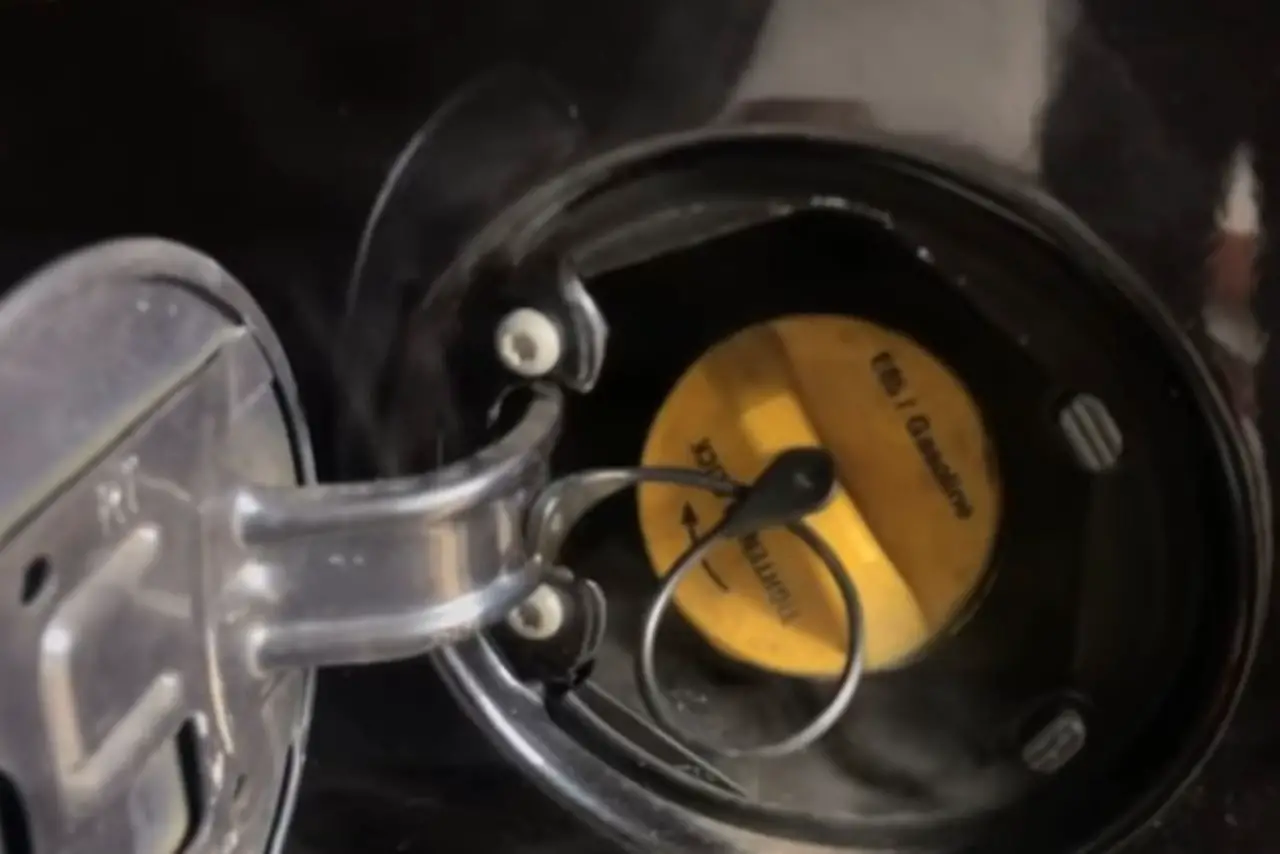
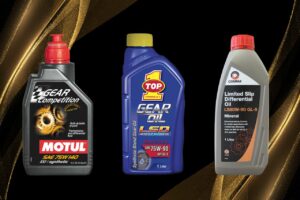
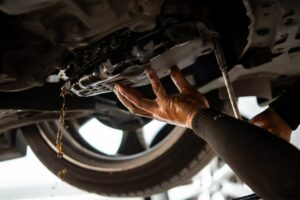
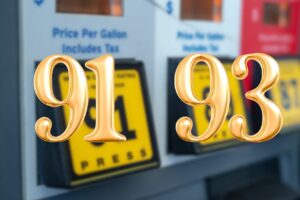
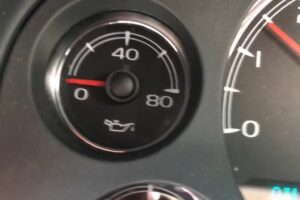
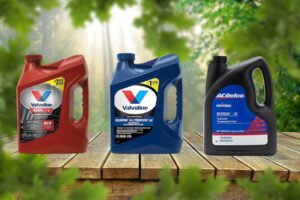
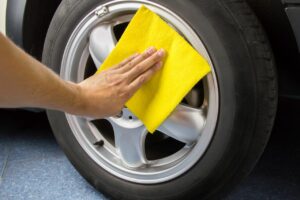
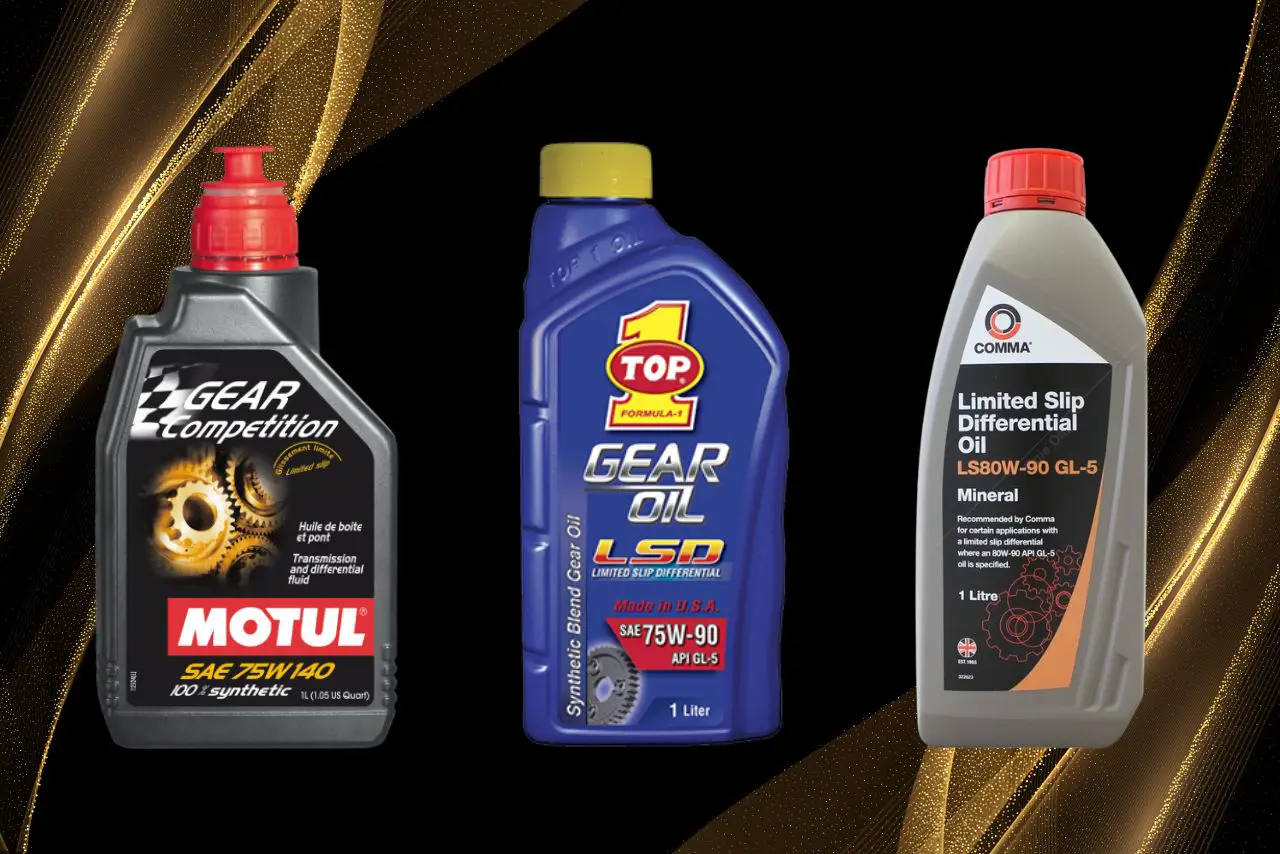
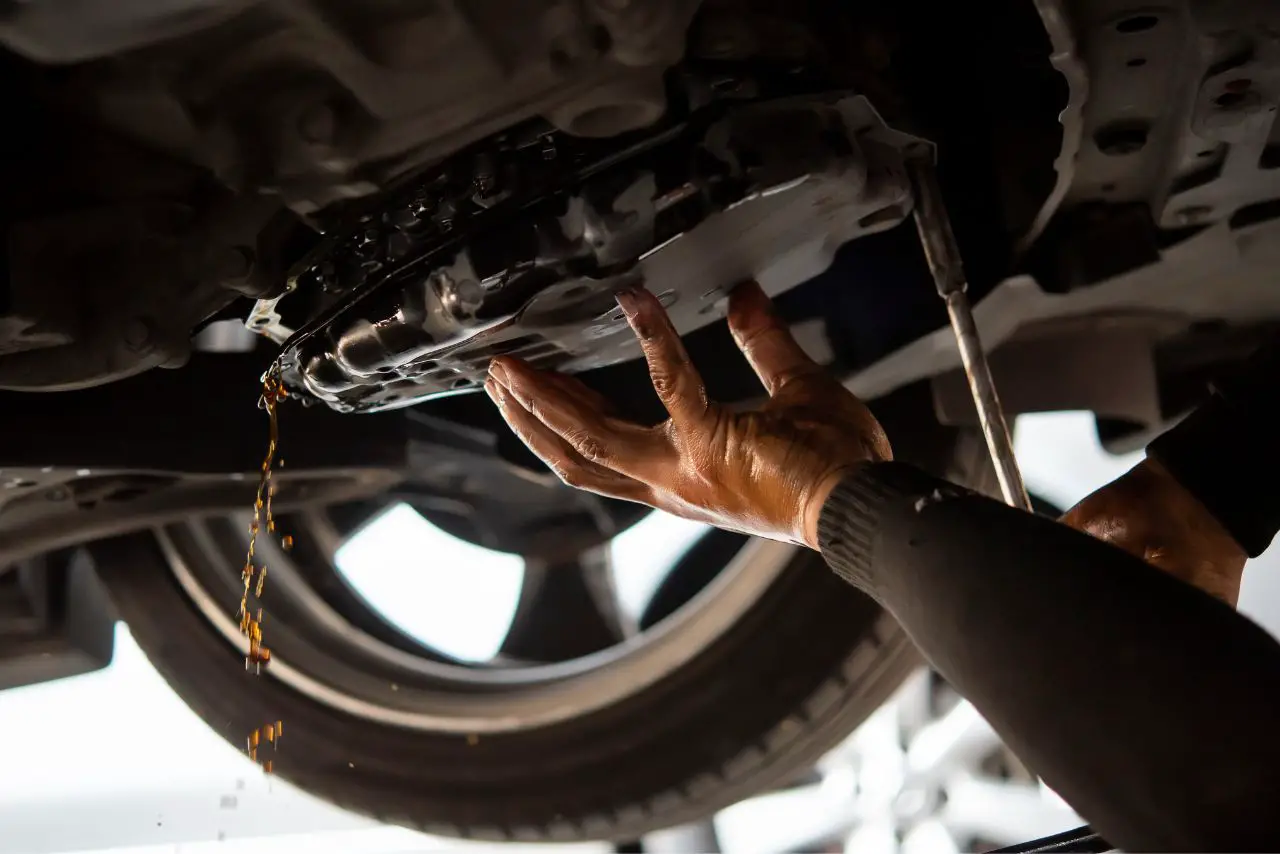
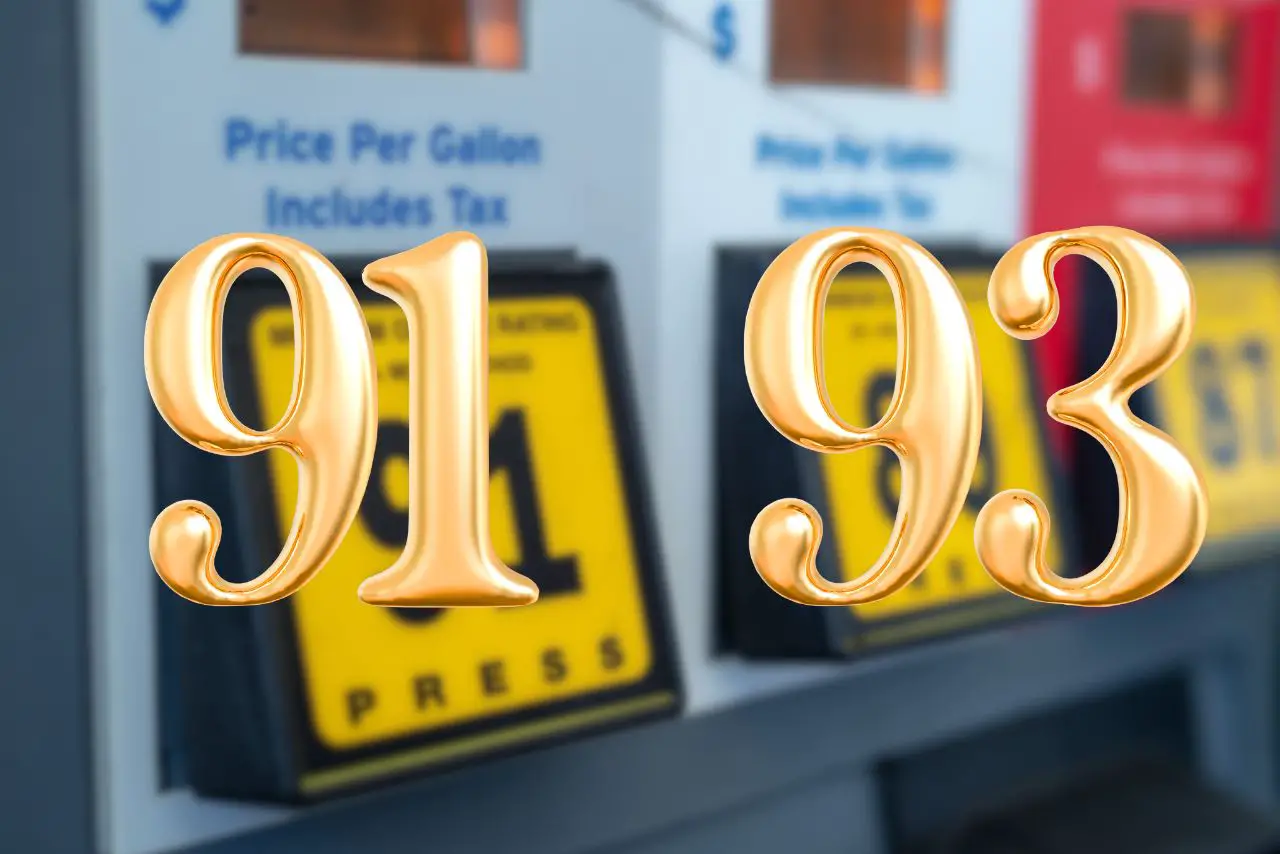

Leave a Reply